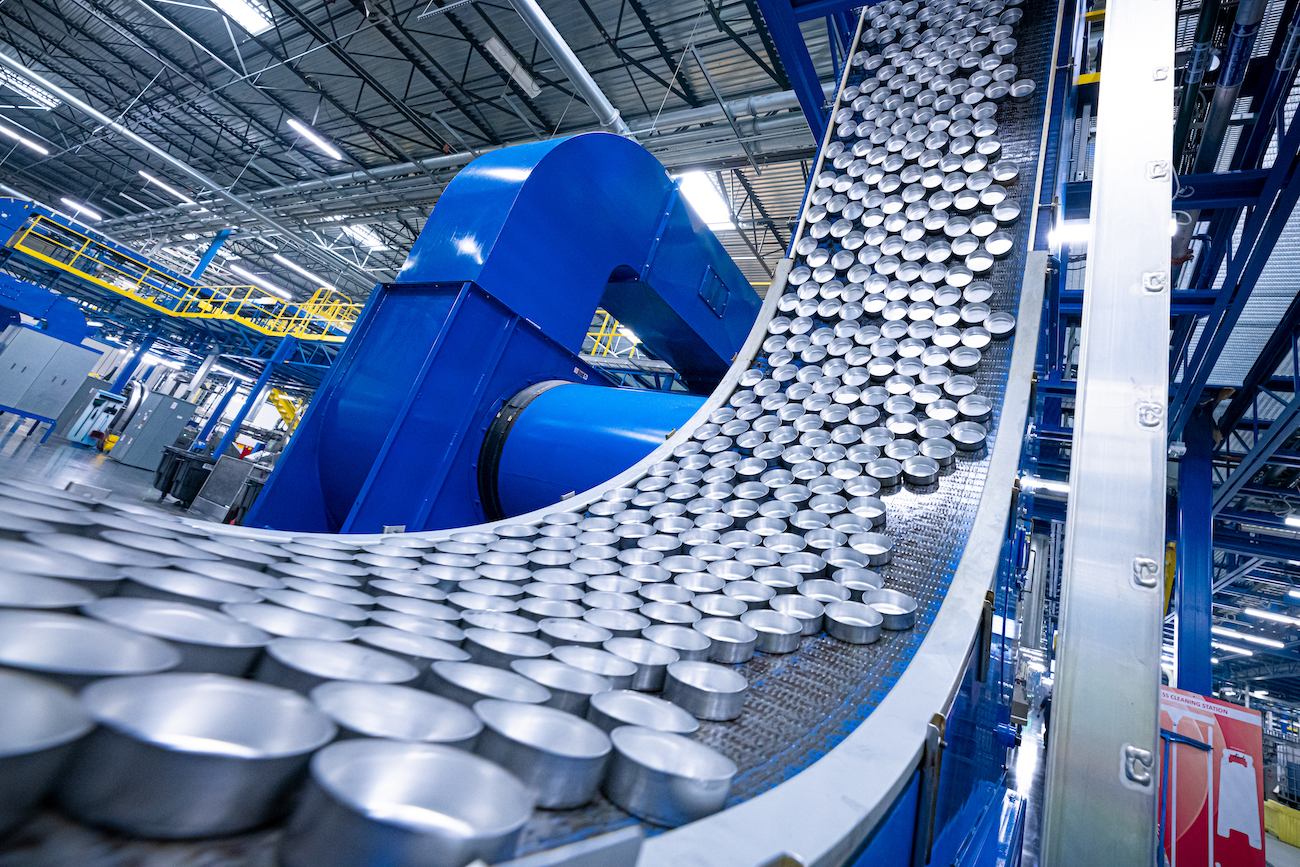
Since we published our first biennial sustainability report in 2008, Ball Corporation has reported environmental data in absolute and normalized terms. Absolute data provides an overview on the overall environmental impacts, while normalized data enables comparability of data over time.
In our different businesses, we produce a variety of products. Within each business, we use a normalization factor that adequately represents the nature of the business and the way it operates. This allows for meaningful comparisons over time and for effective benchmarking of our manufacturing plants.
Business/Product Group and corresponding Normalization Factor:
- Global Beverage Packaging -- per unit of production
- Ball Aerocan - Impact Extrusion -- per unit of production
- Ball Aeroscan - Slug -- per weight of product sold
- Ball Corporation -- intensity index based on the above factors (see explanation below)
We strive to be as transparent as possible and will continue to report absolute and normalized data. We normalize metrics to align with business decision-making and to allow clearer communication of performance to stakeholders, enabling them to evaluate our performance in meaningful ways. This approach also aligns well with our Drive for 10 vision by providing flexibility for future business changes, as we expand into new products and capabilities.
INTENSITY INDEX
The business- and product group-specific normalization factors are also used to calculate a consolidated intensity index (II) for Ball Corporation for environmental metrics (see Data Center). The II accounts not only for overall changes in production over a period, but also for changes in production mix between business segments. It is set at 100 for a reference year, which typically aligns with our five year reporting window.
Intensity Index = (100*KPI total)/((P1*P1x)+(P2*P2x)+(P3*P3x)+(P4*P4x) where: KPI total = total input (e.g. energy) or output (e.g. waste) in target year.
- P1 = number of beverage cans produced (Global Beverage Packaging)
- P2 = number of extruded aluminum containers produced (Ball Aerocan – Impact Extrusion)
- P3 = pounds of aluminum slugs shipped (Ball Aerocan – Slugs)
- P1x, P2x, P3x, P4x = weighting factors (input/output per normalization factor) of each business in base year
The index and related factors are reviewed and – if required – adjusted annually.
NORMALIZATION PER NET SALES
A common practice in sustainability reporting is the normalization per revenues or sales. Metals are among the top three cost components at Ball. They are subject to fluctuations in price and availability attributable to a number of factors, including general economic conditions, commodity price fluctuations, and the demand by other industries. Thus, metal prices can significantly influence our revenues and as a consequence the normalized sustainability performance in either direction.
A LOOK BACK
In our 2008 and 2010 corporate sustainability reports, we initially normalized corporate environmental data on a consistent “per 1,000 units of production” basis. As long as our businesses and their product portfolios did not change significantly, this approach adequately described the relative performance improvements.
However, because our businesses and the products they manufacture change over time, which has led to various inconsistencies between the performance metric (such as electricity) and the normalization factor (unit of production). For example, we sold our PET business in 2009. That business produced vast amounts of units (bottles, preforms), while using an insignificant amount of natural gas. In 2010, we bought plants that manufacture aluminum slugs. The slug process is more complex than plastic bottle production, produces fewer units and uses significantly more natural gas per unit of production.
More recently, in June of 2018, Ball and Platinum Equity announced an agreement to form a tinplate steel food & aerosol container joint venture, to be named Ball Metalpack, and the deal was completed on July 31, 2018. As of this date the Metalpack assets are no longer under the operational control of Ball and are therefore outside the scope of Ball’s environmental performance reporting requirement. In 2019 Ball divested its Chinese Beverage Packaging operations, which included four beverage can manufacturing facilities. To ensure information and comparisons are reliable and meaningful over time, and to allow stakeholders to perform consistent trend analyses of our sustainability performance over multiple years, all 2010-2019 sustainability data are reflective of Ball’s 2019 divestiture of its Chinese Beverage Packaging operations.
As a result, using different normalization factors for different businesses and product groups allows us to provide meaningful data aligned with how our businesses report data internally, and allows our stakeholders to adequately assess the progress we have made in our operations.